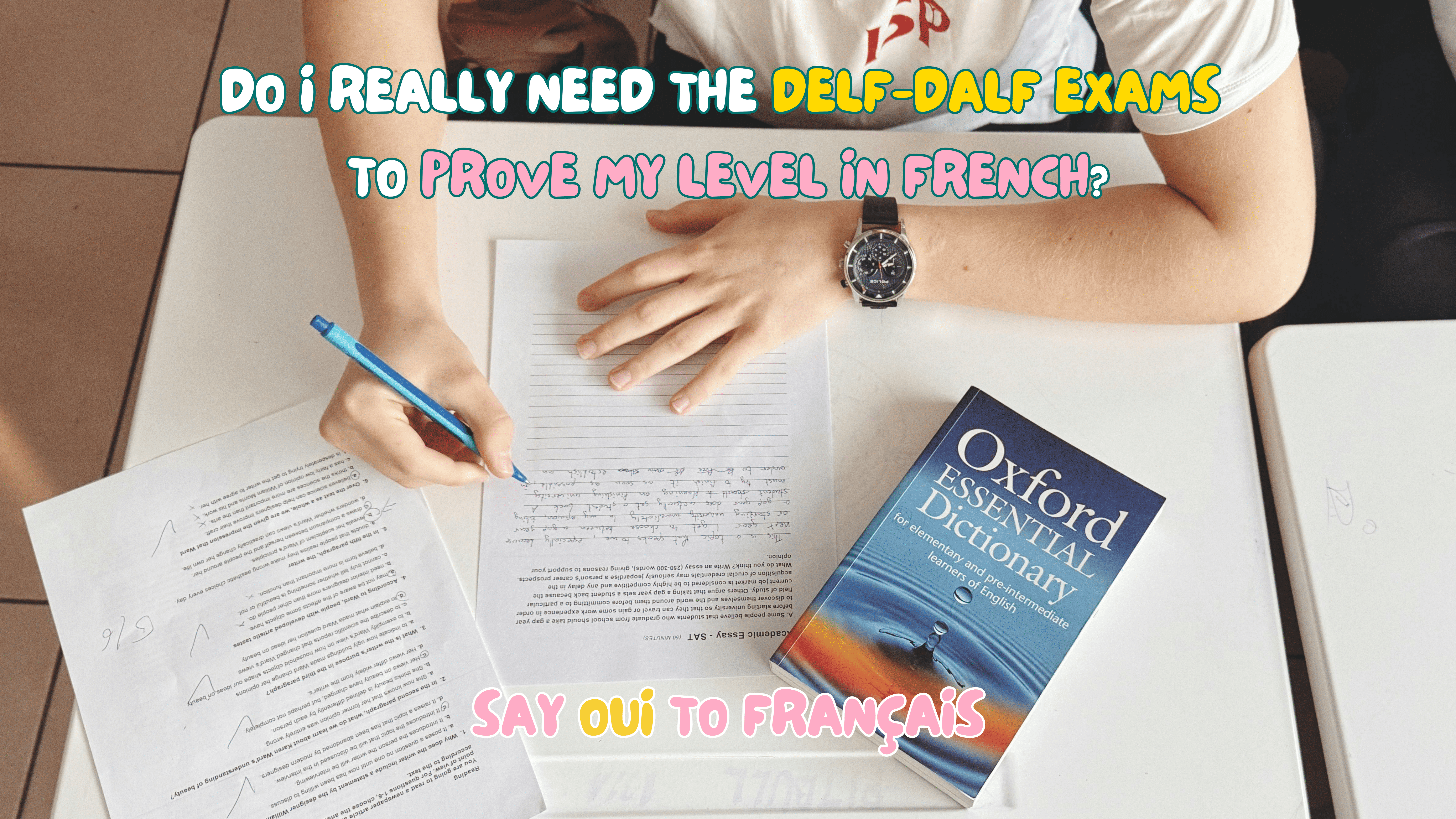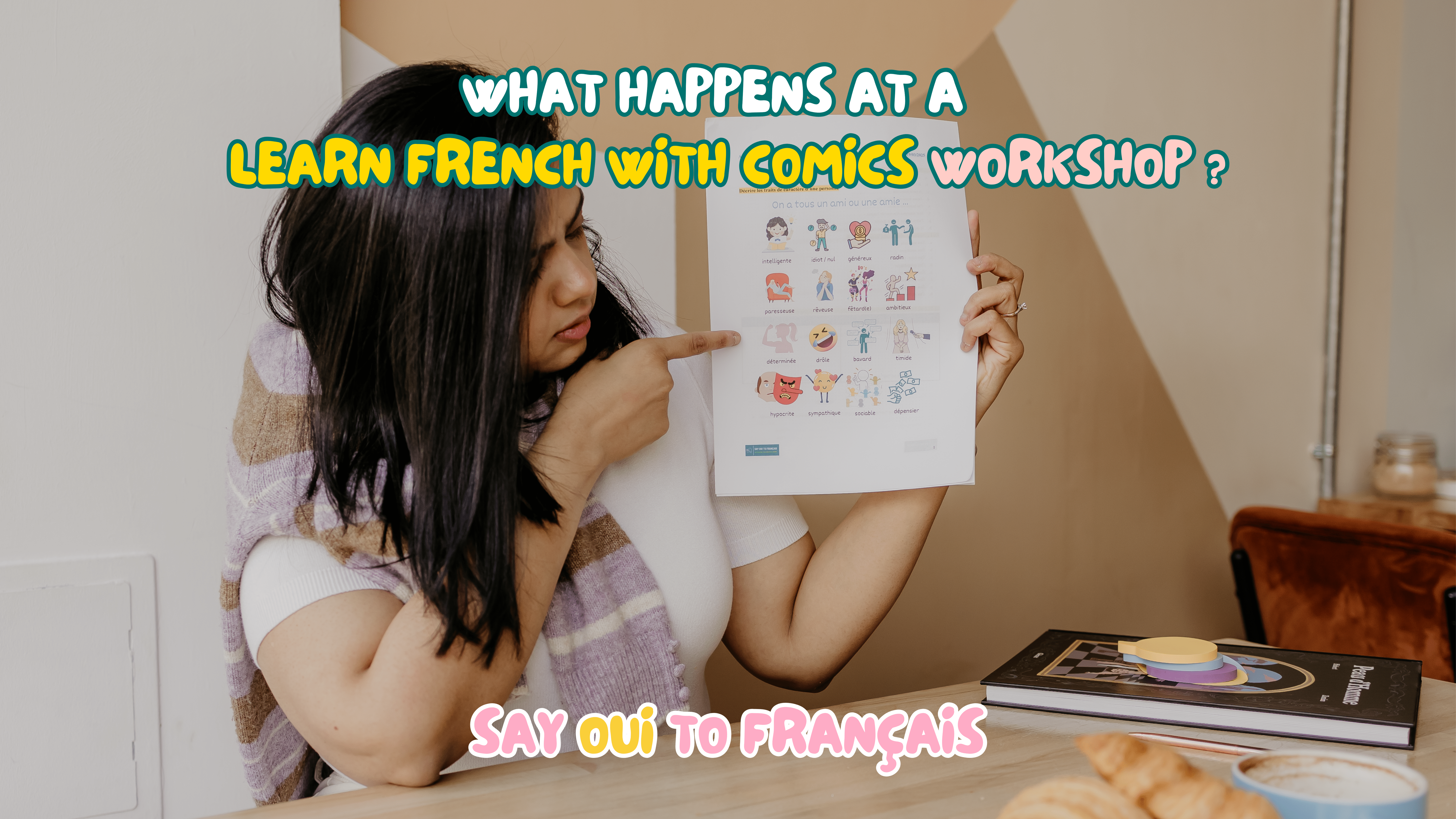
Do I really need the DELF / DALF to prove my level in French?
If you’ve been learning French for a while, you’ve probably heard of the DELF and DALF exams, the official certifications for French as a Foreign Language.
And maybe, you’ve asked yourself :
- “Do I need to pass this exam to prove my level in French?”
- “Will anyone take me seriously without it?”
- “Am I even good enough to try?”
Let’s take a deep breath. This blog post was made to guide you, not stress you out.
First, what are the DELF and DALF exams?
They’re official diplomas issued by the French Ministry of Education.
DELF = Diplôme d’Études en Langue Française (A1 to B2 levels)
DALF = Diplôme Approfondi en Langue Française (C1 and C2 levels)
These exams test your reading, listening, speaking and writing skills in French through real-life tasks. They’re recognised worldwide and they never expire.
When does it make sense to take these exams?
- ✅ You’re applying for a student visa for a French University.
- ✅ You’re applying for a work visa in France, Canada or Switzerland.
- ✅ Your job or university required proof of language level.
- ✅ You love a good challenge and are motivated by structured goals.
If one of these applies to you, go for it! I’ve helped many students prepare for the DELF / DALF exams, and it can be a very empowering experience.
But here’s the truth: Exams aren’t the only way to measure your progress in French.
And they’re certainly not the only way to feel confident about your skills in French.
Many of my students, especially those who are neurodivergent (ADHD, Dyslexia, Discalculia, Autism, etc.), highly creative, or who’ve had negative experiences in traditional school systems find exams stressful, rigid, and honestly, not very fair.
Timed tasks, formal topics, written structure, and impersonal scoring rubrics can feel like a barrier rather than a reflection of their real ability. And guess what? That’s not a failure on their part. That’s a failure of the format to include diverse learners.
You might be perfectly able to:
- 🥐 order food in a busy French café without freezing up
- 💌 email your Airbnb host in polite, clear French
- 🤣 laugh at a French comic strip or series
…but still feel blocked when you’re asked to “describe your hometown in a formal register” with no context and a time limit.
That doesn’t mean you’re not progressing. It means you’re human. Language is not just about rules. It’s about real people doing real things with words.
Other ways to prove (and celebrate!) your level
Here’s the good news: there are so many ways to validate your progress, and many of them are more practical, personal, and empowering than an exam score.
- Real-world communication
Can you introduce yourself, ask for directions, have a chat at a party, or explain something in French, even simply? That’s success. Language is a tool for connection, not a test to pass. - Language portfolios
Start saving bits of your learning: short texts, voice recordings, photos of mind maps, screenshots of vocabulary you’ve collected. This becomes your personal archive of growth, something to show, reflect on, or even present professionally. At Say Oui To Français, I often keep records of my students' progress through voice recordings when they’re expressing themselves - it allows me and them to see how far they’ve come, and believe me, it’s so satisfying! - Teacher assessments
Working with a tutor or attending a class? Ask for a personalised level summary based on CEFR guidelines. A human, nuanced evaluation can give you insight and direction without the pressure of a formal test. - Professional references
If you use French at work, even occasionally, ask a supervisor or colleague to write a quick note confirming your abilities. That can be more useful than a B1 certificate in many real-life situations! - Self-reflection
One of the most powerful things you can do is track your own progress. Keep a journal: “What can I do in French today that I couldn’t last month?”. Confidence grows when we notice the little wins, not just the big milestones. At the end of every session, I ask my students to reflect on their own progress and growth with the help of self-evaluation forms. It allows them to track their own strengths and weaknesses in French, all while being kind to themselves.
My approach at Say Oui To Français
At my school, I support both types of learners:
- 📝 Those who want to prepare for the DELF/DALF, and
- 🌀 Those who want absolutely nothing to do with exams.
You don’t have to fit into a system to be taken seriously as a French learner. I believe your French journey should reflect your goals, your learning style, and most importantly, your joy. Whether you’re studying French to apply for a visa, feel confident during your travels, connect with your partner’s culture, or rediscover a part of yourself, your path is valid.
And if you’re neurodivergent (believe me, I know how you feel, I’ve been there too), a late bloomer, overwhelmed by school-style learning, or simply allergic to rigid evaluation formats…
❤️ You are so welcome here.
🎯 We focus on real-life communication, creative, multi-sensory methods, and helping you feel at home in the French language on your terms, and at your rhythm.





